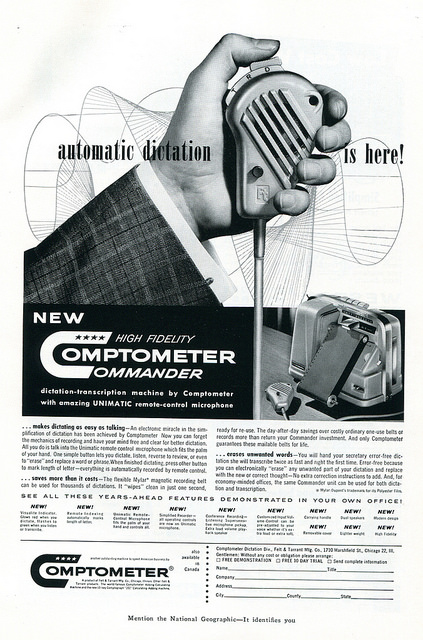Were Briefs Better in the 40s-60s? If So, Why?
 Today, I attended a continuing legal education seminar featuring Ross Guberman. Ross is the author of Point Made: How to Write Like the Nation’s Top Advocates. When his book first came out, I briefly reviewed it and interviewed Ross here on the blog. I have enjoyed Ross’s book immensely and have used it as a reference over the last few years.
Today, I attended a continuing legal education seminar featuring Ross Guberman. Ross is the author of Point Made: How to Write Like the Nation’s Top Advocates. When his book first came out, I briefly reviewed it and interviewed Ross here on the blog. I have enjoyed Ross’s book immensely and have used it as a reference over the last few years.
I could write many blog posts on the points that Ross covered today. However, it was a minor point that intrigued me the most. Ross believes that briefs today are not as good as they were in the 40s, 50s, 60s, and 70s. Why is that so? Ross said that briefs were better when lawyers dictated their work rather than sitting at the keyboard and writing. When lawyers dictated, the product was conversational and direct. When lawyers sit behind the keyboard, our work tends to be less conversational and more cumbersome.
I believe that Ross is on to something. I have been on the fence about using Dragon Dictate, the Mac version of Dragon Naturally Speaking. I have had the software in some form on my computer for years. I go through spurts where I try to use it. In each instance, I have ultimately shelved the project for months before picking it up again. Now, dictation is a feature of my phone and iPad. I have been willing to dictate short projects and found it to be a good way to get work done.
However, I find the exercise of dictation to be easier for short documents or for lengthy summaries than for substantive writing projects such as briefs and complex motions. Even blog posts are difficult to imagine doing using any form of dictation (However, I am preparing this blog post using dictation software on my laptop.) I have feared that dictating a brief would be inferior to typing because of problems with citation and keeping the document organized as I write it. I’ve actually been afraid of dictating briefs and more complex writing.
Things may soon come full circle If the heyday of brief writing was a time before lawyers would sit down and type out documents, then software may actually be taking us back to a new golden age. Dictation, not to an assistant, but to the technology itself, is becoming easier.
I have had the fortune of being mentored by lawyers who dictate much of their work. These lawyers are good writers. They have encouraged me to dictate. While I do some dictation in a traditional setting, I think there is an opportunity for dictation to the technology itself. I can’t wait to give it a serious shot.



